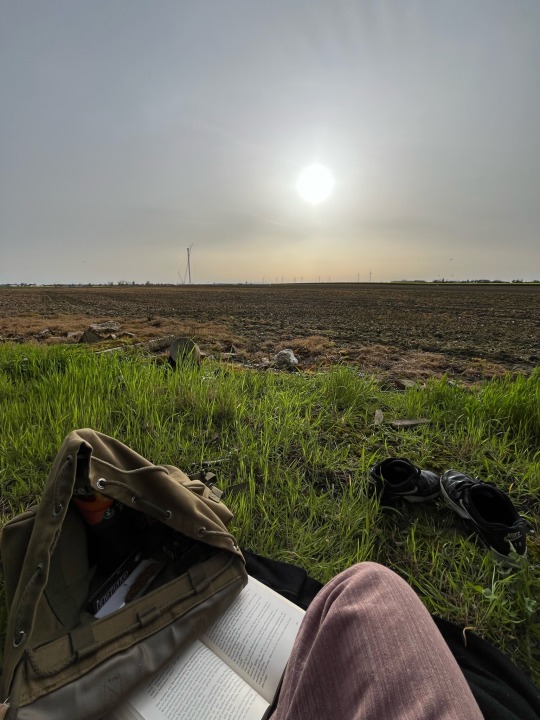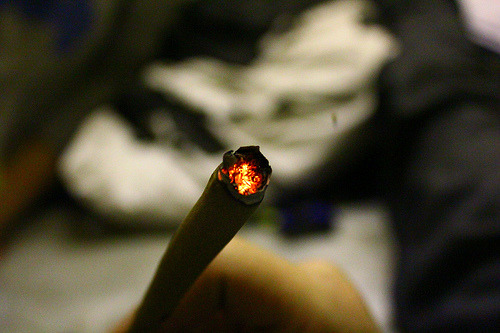#legalization
Text

Gostosa e maconheira meus amigos 😈🤤
85 notes
·
View notes
Text

Ethereal Hollows
#nikkiboo218#ethereal hollows#aesthetic#selfie#smoking woman#smoker#sexy smoker#smoke weed everyday#girls who smoke weed#smoking#smokin hot#blowing smoke#smokers#hot smokers#weedsociety#weedlife#weed intox#street wear#street fashion#fashion#womens fashion#lifestyle#cannabis#smoke#pot#ganja#legalization#legalize cannabis#legalize it#clothing
21 notes
·
View notes
Text

#JoshuaLoveguan
@city_scum
#cannabis#marijuana#weed#pot#legalization#medical marijuana#mmj#medical cannabis#legalize#radio#car radio
77 notes
·
View notes
Text
To be forthright and clear as day:
I think drugs are great. I think knowing your limits is great. I believe all drugs should be legalized/de-criminalized; there should be needle exchanges and safe-use zones (nurses on hand). Narcan should be handed out freely. If someone struggles with addiction, there should be services and rehabs available to help them get therapy and housing. Drug addiction is not a moral failing, it should not be a crime. The focus must be on harm reduction and never on punishment.
22 notes
·
View notes
Text

#brazil#city#day by day#donate if you can#legalization#my blog#my pics#send help#smoke weed everyday#mental health#cemetery#send me money#my photos#my post#lifestyle#urban photography#urban life#please donate#donations#donate
20 notes
·
View notes
Text
16 notes
·
View notes
Text

#smoke#vapor#smoking#atmosphere#haze#cigarettes#fire#weed#cannabis#marijuana#420#stoner#herb#legalization
15 notes
·
View notes
Text
AN OPEN LETTER to THE PRESIDENT & U.S. CONGRESS; STATE GOVERNORS & LEGISLATURES
Support Marijuana Decriminalization for a more Equitable USA
4 so far! Help us get to 5 signers!
I am writing to express my strong support for the decriminalization of marijuana at both the federal and state levels. The current approach to cannabis, rooted in policies dating back to 1971, requires urgent reconsideration given evolving social norms and scientific understanding.
The revelation by President Richard Nixon's domestic policy chief, John Ehrlichman, that the war on drugs was designed to target Black communities underscores the urgent need to rectify the injustices perpetuated by decades of punitive drug policies. The disproportionate impact of these policies on communities of color has fueled systemic inequities in our criminal justice system.
Decriminalization of marijuana would shift our focus from ineffective punitive measures to evidence-based public health strategies, emphasizing harm reduction and regulated use, whether medicinal or recreational. It's crucial to differentiate between decriminalization and unregulated use, prioritizing public health and equitable access.
I urge you to champion legislation that decriminalizes marijuana and addresses the racial disparities entrenched by outdated drug policies. By investing in research and public health initiatives related to cannabis, we can develop policies that protect public health while respecting individual freedoms.
In conclusion, federal and state-level decriminalization of marijuana is imperative to rectify the failures of past policies and promote equitable, evidence-based drug reform. I urge you to seize this opportunity to advance sensible, ethical drug policy reforms that reflect our evolving understanding of cannabis regulation.
Thank you for considering my perspective on this critical matter. I look forward to your leadership in championing meaningful drug policy reform.
📱 Text SIGN PWUITK to 50409
🤯 Liked it? Text FOLLOW IVYPETITIONS to 50409
💘 Q'u lach' shughu deshni da.
🏹 "What I say is true" in Dena'ina Qenaga
#IVYPETITIONS#PWUITK#resistbot#petition#anti racism#racial justice#Marijuana Decriminalization#Cannabis Reform#Drug Policy#Social Justice#Equity#Legalize It#Public Health#Criminal Justice Reform#Racial Justice#Civil Rights#Drug Law Reform#Decriminalize Marijuana#Justice Reform#Drug Policy Reform#End Mass Incarceration#Policy Change#Advocacy#Community Health#Health Equity#Legalization#Racial Equality#Social Change#Drug Reform#Human Rights
7 notes
·
View notes
Text
Against "More Housing & Jobs" as an anti-drug-legalization argument
I claim only drug legalization can drastically and quickly reduce overdose deaths in North America, because only legalization can replace the volatile black market mystery-powder with a consistent supply of known potency and composition. (Here I’m using “legalization” as an umbrella term which encompasses safe supply.)
One of the most pernicious objections to drug legalization is this: “Instead of legalization, we should invest massively in housing and job programs.” Or "Instead of providing marginalized people with more drugs, we should give them services so they won't want drugs anymore."
This is a close cousin to the argument “Instead of legalization, we should invest massively in addiction treatment” which I’ve complained about a lot before, and it is unsound and pernicious for similar reasons.
This objection is pernicious for many reasons. One reason is that it *pretends* to be progressive, but really it is a conservative authoritarian defense of the failed war on drugs. Anti-drug-user conservatives cynically make this argument to fool ill-informed progressives into opposing legalization on pseudo-progressive grounds. It's a grotesque abuse of progressive values, and tends to be dishonest.
These conservatives tend to actively oppose investment in housing and job programs. Even when they aren't outright hostile, they insist that housing and job programs should actively discriminate against people who use drugs, especially against addicted people who are at highest risk.
By contrast, pro-drug-legalization progressives and harm reductionists are among the staunchest supporters of massive investment in housing and job programs, and against anti-drug-user discrimination within these programs. For instance, there are close ties between the harm reduction movement and the low-barrier housing/housing-first movement. Harm reduction and safe supply programs are often accompanied by services to assist drug users to get or maintain jobs and housing.
Moreover, the objection is fundamentally a distraction aimed at shutting down critical thought. It insinuates that drug legalization is somehow at odds with housing and job programs—but gives zero explanation as to how or why there would be any conflict between the two. They don't want you to ask these questions or flesh out the structure of the argument. It's a thought-stopper. The argument is aimed at people who won't scrutinize it.
(Note: Later, I will come back to a steelmanned argument that suggests there could be a more subtle conflict between jobs/housing and legalization-- but conservatives don't and can't actually make the more subtle argument.)
Housing & Jobs ARE good and probably reduce addiction -- but here are four reasons this does NOT justify the anti-legalization view
Of course, one can very reasonably argue that housing and job programs would reduce addiction (and/or the worst symptoms of addiction) greatly--perhaps rendering legalization unnecessary. Indeed I claim we should invest in housing and job programs—in part to reduce addiction and overdose, and in part for many other reasons. But construed as an anti-legalization argument in particular, this argument is severely flawed on at least four grounds (in addition to the fact that there simply is no actual contradiction between jobs/housing and legalization, as I noted).
One, it is empirically unclear how much housing and job programs would reduce addictions that already exist, and there is a serious risk of overstating the case --including by legit progressive advocates of housing and job programs, who arguably sometimes exaggerate how much housing-first programs reduce addiction and/or overdose.
Two, regarding jobs: Many people with severe drug addictions are presently unable to hold a job (or there are very few jobs they can hold). This somewhat limits the scope of jobs as a solution for presently addicted people, at least for now. Overdoses are disproportionately very common among people who don't have jobs-- but I'm not sure of the causal directions (probably there are multiple causal directions), and it isn't clear how many of them could have their overdose risk much reduced by job programs in particular (even for the subset of them who can hold jobs, let alone those who cannot).
Three, housing and job programs can’t reduce addictions quickly, but rather (at best) quite slowly-- by (1) slowly preventing the acquisition of new addictions among a new cohort of would-be addicted people, and (2) by slowly helping treat addictions among a subset of presently-addicted people. And in the meantime, hundreds of thousands of addicted drug users will continue dying. Only legalization can quickly reduce overdoses.
Some people attack legalization as short-term oriented—but I think we SHOULD be short-term oriented in this way, since so many thousands of people are dying right NOW.
Four, housing and job programs won’t likely do much to reduce overdoses among non-addicted drug users who still use the unregulated drug market. Non-addicted drug users almost surely constitute a minority of overdose deaths, but still a lot of people in total. And non-addicted drug users are also the large majority of total people who use drugs. (I'm here assuming the "addiction" conceptual-theoretical framework is more-or-less legit-- although this is far from uncontroversial.)
The "Housing & Jobs" anti-legalization argument is probably unsound or flawed in other ways too, but that's what I can think of offhand. Admittedly I'm being very hand-wavey about the specifics. Lots of empirical research by experts would be needed to flesh out the analysis more concretely.
The Realpolitik Variant of the Argument
Finally, is there a better possible variant of the argument? Maybe. One could potentially argue that drug legalization would be good if attained-- but that we should strategically abstain from advocating for it, or that we should make it low-priority, because of the limitations in government funding and/or political capital. We can only pragmatically advocate for so many things at one time, so perhaps we should sacrifice legalization for the sake of gains in jobs and housing? These sorts of reasons could create a real conflict between jobs/housing and legalization.
(Relatedly, one could also worry that legalization may create conservative backlash (which decriminalization has arguably caused in British Columbia and Oregon), or that it may problematically empower for-profit drug corporations and/or right-libertarians, in such a way as to strengthen longterm opposition to progressive advocacy for jobs and housing.)
At the risk of misusing terminology, I will tentatively call this the realpolitik argument against legalization advocacy. Perhaps the realpolitik argument has serious weight in countries that don't have an ongoing severe overdose crisis, outside North America. However, I think the realpolitik argument would probably also be unsound, at least in North America-- if indeed I'm right that only legalization can save hundreds of thousands of people's lives. I do not believe there are strong enough realpolitik considerations, with a high enough probability, to outweigh the value of such massive-scale life-saving (even if we discount for the fact that there is some probability that I am mistaken about legalization's effects).
In any case, conservatives do not make this argument, and indeed cannot legitimately make this argument—since conservatives are the ones mainly responsible for opposing progressive goals and creating the aforementioned limitations on government funding and political capital, in the first place.
#drugs#drug policy#war on drugs#social justice#legalization#safe supply#harm reduction#opioids#addiction#overdose
12 notes
·
View notes
Text
Yes.
Well, has it never occurred to you that weed is not a personality trait?
Yeah.
And no it’s not a solid basis for one’s personal politics either.
Yes.
Yes I’m saying this as someone who’s in favour of legalization.
#dougie rambles#personal stuff#weed#drugs#legalization#cannabis#vent post#political crap#fuck’s sake#personality#or lack thereof#maybe#idk#what#don’t ask
6 notes
·
View notes
Text
113 notes
·
View notes
Text
Happy 420 day fellas <3 In case you haven't heard, Weed has been legalized here in germany on April 1st, which makes me extremely happy as I am living in the most conservative state here with the most strict rules, not even kidding (and they still tryin everything to restrict). But IT HAS HAPPENED AND IT IS HAPPENING. You cant get criminalized anymore here in germany which has been a BIG deal esp because all of the teens that literally had to go to prision (!!!) because of simply owning cannabis. The prohibition went on for like 60-80 years and here in Bavaria it feels like 100 years tbh. I cannot even properly express how released I really am. The paranoia and fear that the gvnment has been building up for decades is slowely fading on a collective level. PEACE. It's a historical time for me esp because I grew up in germany. It feels like so much stagnant energy is being released now. Released. The last people who would do ANY harm at all are stoners. They never did. They never will.
Peace. Peace for humanity. Babylon shall fall. It is falling. Love is always winning.Ganja our medication.
Reloveution happening inna di country <3 And abroad
Only love will save us. Only LOVE will end war, hate, aggression, injustice.
Always have, always will.
That's the universal law.
Blessings y'all <3
xx
#happy420#stoners#healingplant#healinghumanity#collectiveconsciousness#432hz#reggae#peacefulcelebration#PLUR#earthchildren#youareguided#youareprotected#Earthlovesyou#legalization#hugestep#reloevution#maryjane#sweetmaryjane#mother#itreallyhappened.
3 notes
·
View notes
Text

Da uma olhada no Privacy.
#tattoed girls#brazil#donate if you can#my blog#my pics#send help#daddy's good girl#tumblr girls#day by day#legalization#smoke weed everyday#city#girl cute#cute girl#sexy egirl#egirl noods#hot egirls#egirl#send me money#send anons#sexy tattoed women#tattoos#tattoed babe#sexy content#i sell custom content#i sell noods#i sell photos#i sell content#i sell custom pics
12 notes
·
View notes
Text

🌱peace
2 notes
·
View notes

